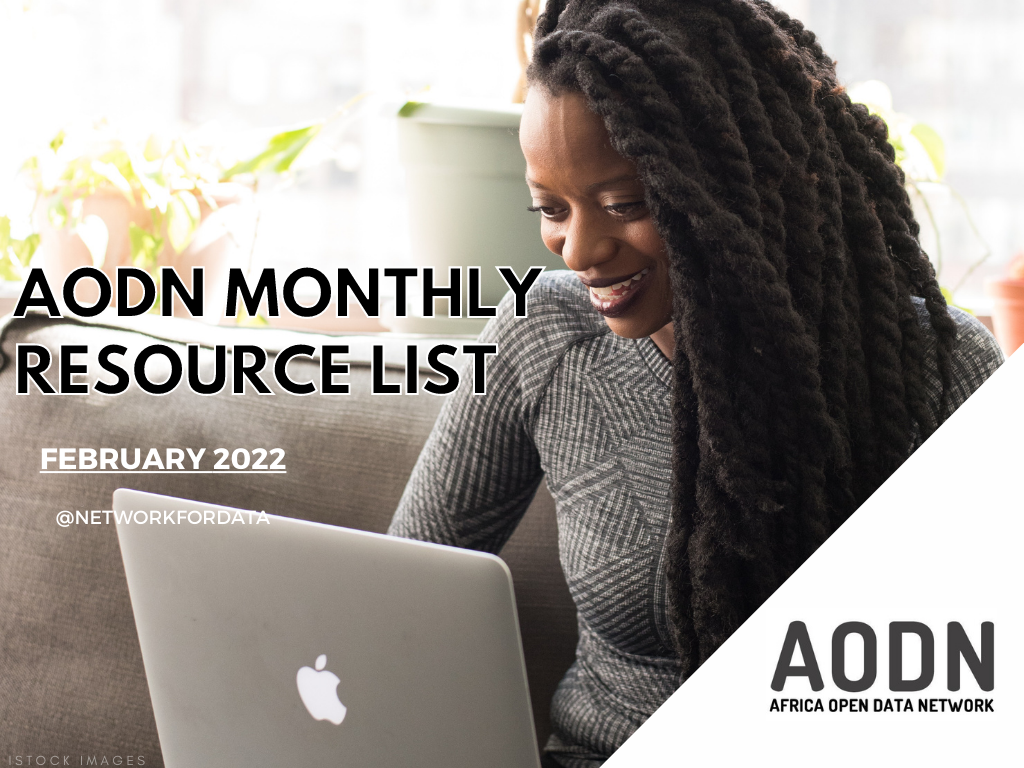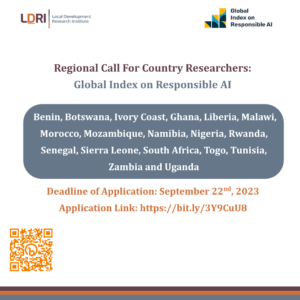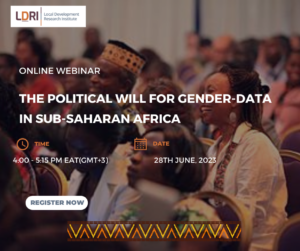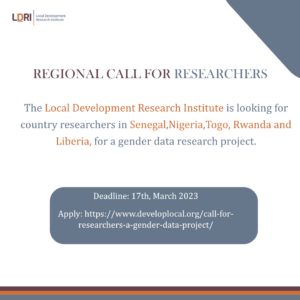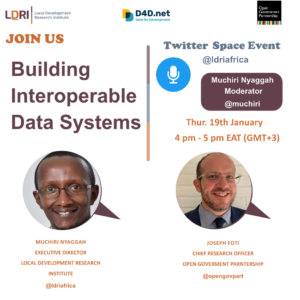The monthly resource list for February 2022 puts together content including a reading list, avenues for capacity building, and events from different stakeholders across the globe on the use of (open)data and for better service delivery in sectors such as Agriculture, Education, and Health.
What AODN is reading this Month
AODN: What Should Government Institutions Do to Improve Access to Data and its Use in Decisions Making?
The COVID-19 pandemic has led to the elevated public interest in the availability of related data, as everyone is keen to know the number of infections, the finances allocated in fighting the disease, the number of facilities that are able to handle the patients, and so on. This interest has led to more accountability demanded by the public from the government to be transparent. Government institutions such as ministries, parastatals, state departments, and the military make complex policy decisions that affect citizens, such as improving service delivery, allocating budget, and responding to crises. The institutions, therefore, are increasingly using insights from the large amounts of data initially collected for reporting purposes to make strategic decisions in the wake of crises such as the current COVID-19 pandemic. Read More.
DataDENT: Data for Decisions to Expand Nutrition Transformation
(DataDENT) is a five-year initiative (2017-2022) that aims to transform the availability and use of nutrition data by addressing gaps in nutrition measurement and advocating for stronger nutrition data systems.
Data innovations hold promise for addressing challenges across all aspects of nutrition data, and, with COVID surging worldwide, high-quality, real-time data is more important than ever. Given the limited work around data innovations for nutrition, DataDENT reviewed data innovations developed in or after 2015 across the following nutrition domains—diet, food security, food environment, food fortification, micronutrients, and nutrition status. They identified 9 data innovation categories and their subcategories which they found to be most prominent in the broader data innovation space. They then mapped the 60+ nutrition data innovations found in our search to these categories. They found a significant number of nutrition data innovations are mobile solutions, digitalization, or artificial intelligence. They also found the majority of innovations to be related to nutrition status and diet data, with comparatively less around food fortification data. Finally, most innovations influence the collection, analysis, and translation of data and less so which data to collect and their use for decision-making.
Visit the nutrition data innovations Master database
DATA4SDGS: Five lessons from an NSO: Strengthening citizen-generated data in Kenya
The Kenya National Bureau of Statistics in consultation with the relevant stakeholders is in the process of operationalizing the use of Citizen Generated Data for official reporting. As an NSO, we are interested in exploring the use of CGD in order to fill existing data gaps, in particular, in the monitoring and reporting of the SDG indicators. In addition, we see CGD as valuable in providing granular data for planning, monitoring, and implementation of development initiatives at the sub-national and hyperlocal levels. This is invaluable for tracking the progress of the decade-old devolved system of government in Kenya. Read More.
DATA2X: The Landscape of Big Data and Gender: A Data2X Update
Over the last several years, Data2X has investigated the role of “big data” in filling gendered knowledge gaps by funding ten research projects that analyzed the potential of big data to quantify the economic, social, and health status of women and girls.Read the Report.
Solutions For Building Resilient Gender Data Systems
The COVID-19 pandemic has stagnated—and in some areas reversed—hard-won progress on gender equality. Nearly two years after the virus first emerged, we still struggle to answer basic questions about the status and welfare of women and girls. This crisis has spotlighted what the global community has long known: there continue to be major gaps in gender data and shortfalls in the financing needed to enable countries to fill those gaps. These gaps have enormous implications for our capacity to support women and girls, creating a pertinent case for addressing shortfalls at the local, national, and global levels. Closing these gaps and responding to new demands with limited budgets requires new methods and technologies. Read the Brief.
PARIS21: Survey on the Implementation of the Cape Town Global Action Plan for Sustainable Development Data
Nearly five years after the adoption of the Cape Town Global Action Plan for Sustainable Development Data, this global survey of national statistical offices (NSOs), conducted by the World Bank’s Development Data Group, the Statistics Division of the UN Department of Economic and Social Affairs (UNSD) and the Partnership in Statistics for Development in the 21st Century (PARIS21), paints a mixed picture of progress. The survey’s results reveal that despite gradual improvements, the transformative change in national statistical capacities proposed in the Global Action Plan has yet to be realized, particularly in low- and middle-income economies. However, NSOs have continued to function despite the enormous strain the COVID-19 pandemic has placed on them, attesting to their strength and resilience. The survey was conducted jointly online in August and September 2021. NSOs from 101 countries participated, providing insights to policymakers and international partners on their efforts to implement, monitor, and finance the Global Action Plan. Download here.
WORLD BANK: Three ways to tackle gender data gaps – and 12 countries embracing the challenge
Gender data go well beyond sex disaggregation. Contrary to popular belief, gender data is not only on women or women’s issues but encompasses the full range of the life cycle intersecting with all sectors from getting a proper ID at birth to accessing quality education to getting a decent job to using public transport and feeling safe at home and in public spaces. Gender data also pays specific attention to women and men’s different realities and how those interact with other forms of individual characteristics. Read More
DATA FOR POLICY: Turning mobile big data insights into public health responses in times of pandemics: Lessons learned from the Democratic Republic of the Congo
In low-income countries like the Democratic Republic of the Congo (DRC)—where data is scarce and national statistics offices often under-resourced—aggregated and anonymized mobile operators’ data can provide vital insights for decision-makers to promptly respond to both prevailing and new pandemics, such as COVID-19. Yet, while research on possible applications of mobile big data (MBD) analytics for COVID-19 is growing, there is still little evidence on how such use cases are actually being adopted by governmental authorities and how MBD insights can effectively be turned into informed public health actions in times of crises. Download here.
-
Events/Webinars
Eighth Session of the Africa Regional Forum on Sustainable Development 3rd-5th, March.
Open Data Day 5th, March
Open Data Day For Africa’s Development 5th, March.
Reality check: Are we on track to achieve SDG 5 by 2030? 7th, March
-
Available trainings/tools
Practices Of Evidence-Informed Decision-Making: Short Learning Programme
Covid-19 Vaccine tracker-Africa

